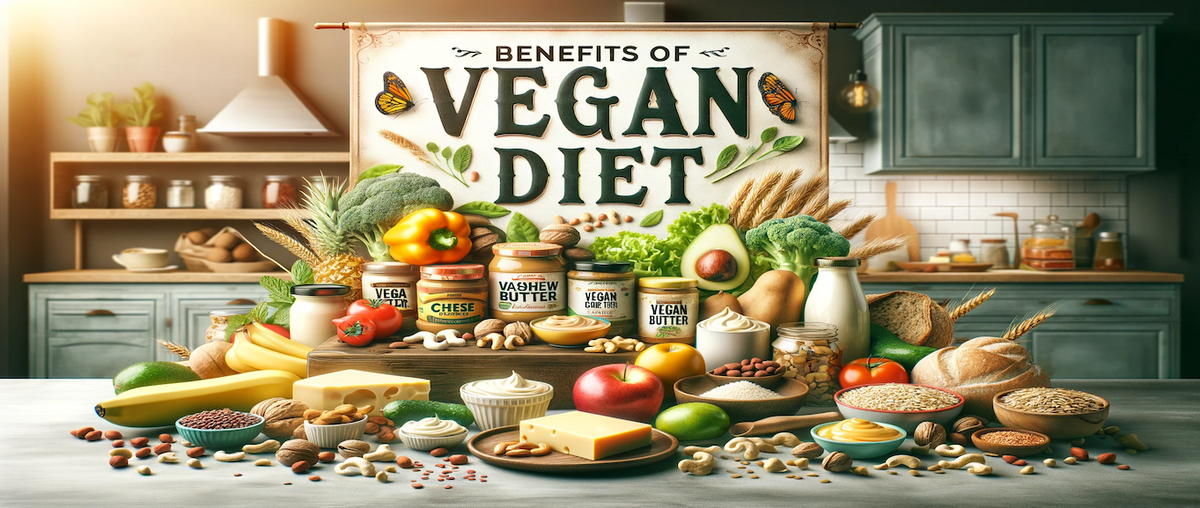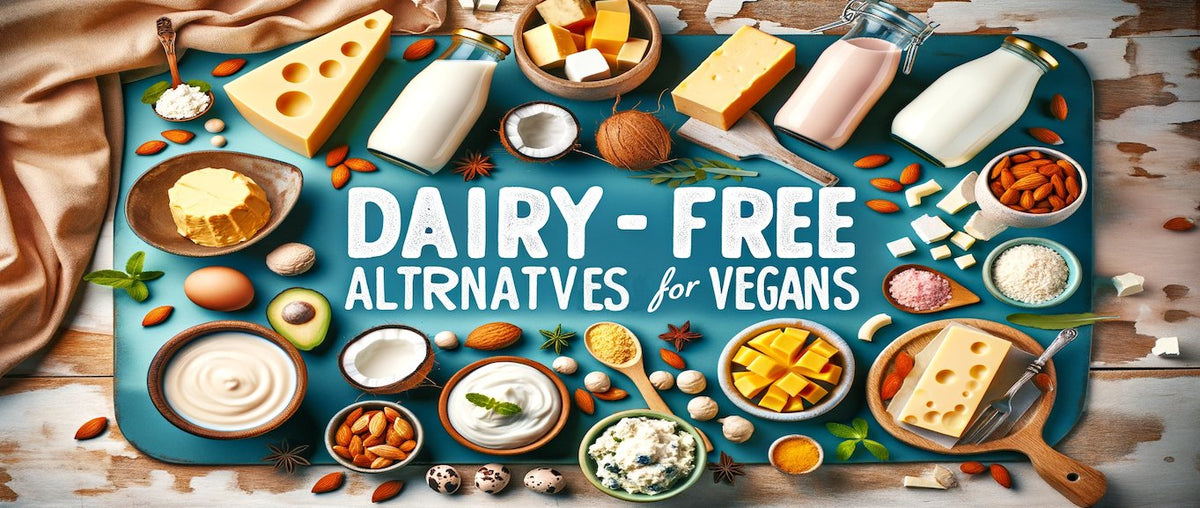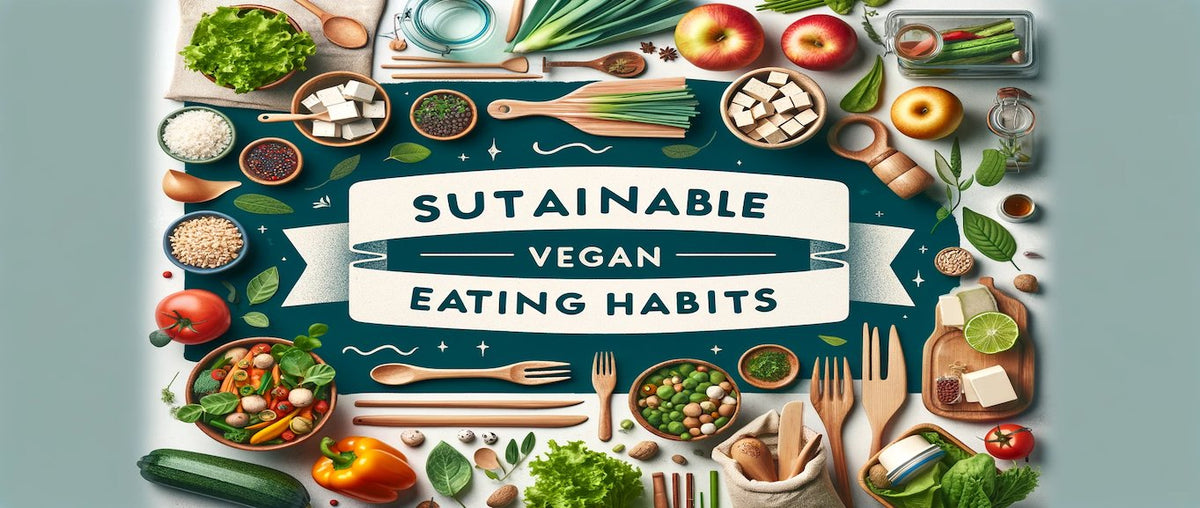Unlock the Benefits of Vegan Diet - Health Combined!
Veganism is more than just a dietary trend; it's a philosophy that extends to all aspects of life. This blog post will delve into the world of veganism, exploring benefits of vegan diet, environmental impact, and ethical considerations. We'll also provide practical tips for anyone considering a vegan lifestyle, from beginners to seasoned vegans. Whether you're looking to improve your health, protect the environment, or reduce animal suffering, this blog post will equip you with the knowledge and resources to make informed choices about your diet and lifestyle.
What is a Vegan Diet?
Veganism is more than just a diet; it's a lifestyle choice that excludes all forms of animal exploitation and cruelty, whether for food, clothing, or any other purpose. At its core, a vegan diet involves abstaining from all animal products, including meat, dairy, and eggs. It's a plant-based diet that focuses on fruits, vegetables, legumes, nuts, seeds, and whole grains.
Historical Context
The term 'vegan' was coined in 1944 by Donald Watson, who founded the Vegan Society in the UK. Initially, it was a way to distinguish between vegetarians who consumed dairy and those who didn't. Today, it represents a comprehensive philosophy and lifestyle, aiming to avoid all forms of animal harm.
Nutritional Perspective
From a nutritional standpoint, a vegan diet can be rich and varied, offering all the necessary macro and micronutrients. Key is to plan the diet well to include a variety of foods that provide protein, vitamins, minerals, and essential fatty acids.
Health Benefits of a Vegan Diet
Adopting a vegan diet comes with a myriad of health benefits, backed by scientific research and clinical studies.
Improved Heart Health
Numerous studies have shown that vegans may have a lower risk of heart diseases. This is attributed to the higher intake of whole grains, nuts, fruits, and vegetables, which are known to improve heart health.
Fact: According to a study published in the Journal of the American Heart Association, following a plant-based diet can lower the risk of heart disease by 25%.
Lower Risk of Certain Cancers
The World Health Organization has classified processed meats as a Group 1 carcinogen, meaning they're known to cause cancer. By avoiding these products, vegans potentially reduce their risk of certain cancers.
Benefits for Diabetes and Blood Sugar Levels
A vegan diet may also contribute to lower blood sugar levels and improved kidney function. This makes it a beneficial dietary choice for managing and preventing type 2 diabetes.
Enhanced Weight Management
Studies have found that those following a vegan diet tend to have a lower body mass index (BMI) than non-vegans. This can be attributed to a higher dietary fiber intake, which can lead to reduced calorie intake and weight loss.
Improved Gut Health
The high fiber content in a vegan diet also promotes healthy gut bacteria, leading to better digestion and overall gut health.

Eating Vegan Can Help You Lose Excess Weight
One of the most compelling reasons people opt for a vegan diet is its effectiveness in aiding weight loss. By focusing on plant based foods and eliminating high-calorie, high-fat animal products, individuals often find it easier to achieve and maintain a healthy weight.
The Role of Plant-Based Foods in Weight Management
Plant-based foods like Vegan Cheese, vegan butter , and Cashew Butter typically have fewer calories and less fat compared to their animal-based counterparts. They are also higher in dietary fiber, which promotes fullness and reduces overall calorie intake.
Example: A sandwich with vegan mayo and plant based cheese can be a healthier, lower-calorie alternative to one with traditional dairy cheese and mayonnaise.
Success Stories and Research
Numerous success stories and research studies have highlighted the weight loss benefits of a vegan diet. A study in the journal Nutrition found that participants on a vegan diet lost more weight than those on more traditional diets, even when they were allowed to eat until they felt full.
Fact: The inclusion of vegan food products like cholesterol free foods and fat-free butter in diets has been associated with lower body mass indices and reduced risk of obesity.
Should I Go Vegan?
Deciding to adopt a vegan lifestyle is a personal choice with numerous factors to consider. Here, we explore the reasons why one might choose to go vegan and the considerations involved.
Health Benefits
As previously discussed, a vegan diet offers numerous health benefits including improved heart health, weight management, and lower risks of certain diseases. Incorporating plant based products like vegan cheese and vegan butter can significantly improve your overall health.
Ethical and Environmental Considerations
Many people choose a vegan lifestyle for ethical reasons, to avoid contributing to animal suffering. Additionally, veganism is considered more sustainable and environmentally friendly, as it reduces carbon footprint and conserves natural resources.
Taste and Variety
With the rising popularity of veganism, there's an ever-growing variety of delicious vegan products available. From Vegan Shop offerings to supermarket shelves, options like cashew butter, vegan mayo, and other plant based cheese varieties make it easier to enjoy a diverse and satisfying diet.
Challenges and Adaptations
Transitioning to a vegan diet requires some adjustments. It's important to plan your diet carefully to ensure you're getting all the necessary nutrients. Fortunately, with a wide range of vegan food products and resources available, adopting a vegan lifestyle has never been easier.
Types of Vegan Diets
Veganism is not a one-size-fits-all approach; there are various types of vegan diets, each catering to different preferences and nutritional needs.
Types of Vegan Diets
Veganism is not a one-size-fits-all approach; there are various types of vegan diets, each catering to different preferences and nutritional needs.
Whole-Food Vegan Diet
This diet is centered around whole plant-based foods like fruits, vegetables, whole grains, nuts, and seeds. It's a wholesome approach that emphasizes natural and minimally processed vegan products.
Raw-Food Vegan Diet
This diet consists of raw fruits, vegetables, nuts, seeds, and plant-based foods cooked at temperatures below 118°F. Raw plant based foods and snacks, including options like Cashew Butter, are popular in this diet.
80/10/10 Diet
Also known as the low-fat, raw-food vegan diet, it limits fat-rich plants like nuts and avocados, focusing instead on raw fruits and soft greens. It's an extension of the raw-food diet, emphasizing low-fat plant-based products.
The Starch Solution
A low-fat, high-carb vegan diet, this focuses on cooked starches like potatoes, rice, and corn instead of fruit. Products like fat-free butter and vegan cheese can be included in moderation.
Junk-Food Vegan Diet
A less health-focused approach that relies on heavily processed vegan food products like vegan butter, vegan mayo, and meat substitutes. While convenient, this diet might not offer the full health benefits of more balanced vegan diets.
Thrive Diet
A raw-food vegan diet focusing on whole, plant-based foods that are raw or minimally cooked at low temperatures. It promotes consumption of plant-based foods and nutrient-rich supplements.
Vegan Diet Risks
While a vegan diet offers numerous health benefits, there are potential nutritional risks to be aware of.
Nutritional Deficiencies
A common concern is the risk of certain nutrient deficiencies, such as Vitamin B12, iron, calcium, iodine, and omega-3 fatty acids. These nutrients are typically found in animal products, so vegans need to find alternative sources or supplements. Fortified vegan products like cereals and plant milks can help mitigate these risks.
Protein Considerations
While a well-planned vegan diet can provide enough protein, it's important to include a variety of protein sources. Plant-based foods such as lentils, chickpeas, tofu, and vegan cheese are excellent protein sources.

Impact on Existing Health Conditions
Individuals with certain health conditions, such as osteoporosis or anemia, should approach a vegan diet with caution. Consulting a healthcare professional and incorporating fortified vegan food products is advisable.
Social and Culinary Challenges
Adopting a vegan diet can sometimes be socially challenging, particularly when dining out or attending social events. However, with the increasing availability of vegan products in restaurants and stores, this is becoming less of an issue.
Going Vegan May Protect Against Certain Cancers
The link between diet and cancer is complex, yet evidence suggests that certain aspects of the vegan diet may offer protective benefits against cancer.
Plant-Based Foods and Cancer Prevention
A vegan diet, rich in plant-based foods, is loaded with antioxidants, fibers, and various phytochemicals. These components play a role in reducing inflammation and protecting against cell damage, which can lead to cancer.
Fact: Studies have shown that diets high in fruits and vegetables may reduce the risk of developing certain cancers, particularly those of the digestive system.
Role of Vegan Products in Cancer Prevention
Specific vegan food products like plant-based cheese, vegan mayo, and cholesterol-free foods are not only healthier alternatives but may also contribute to a reduced risk of cancer due to their nutrient profiles.
Dairy and Meat Substitutes
Switching to vegan cheese and vegan butter, and avoiding processed meats, which are classified as carcinogens by the World Health Organization, can be a proactive step in cancer prevention.
A Few Tips for New Vegans
Transitioning to a vegan lifestyle can be a rewarding journey, but it also comes with its challenges. Here are some practical tips to help you navigate this change.
Educate Yourself
Understand the nutritional aspects of a vegan diet. Familiarize yourself with vegan products, plant-based foods, and their nutritional content.
Start Slowly
If a sudden switch seems overwhelming, start by gradually incorporating more plant-based products into your diet. Replace traditional dairy with vegan butter and plant-based cheese, and try vegan mayo in your recipes.
Plan Your Meals
A well-planned diet is crucial to ensure you are getting all the necessary nutrients. Include a variety of plant-based foods to cover all your nutritional bases.
Experiment with Recipes
Explore the world of vegan cooking. Try making dishes with cashew butter, plant-based cheese, and other vegan food products. The variety can be surprisingly delightful.
Join Vegan Communities
Connect with fellow vegans for support, recipe sharing, and dining tips. Many online communities and local groups exist, making it easier to adopt and enjoy a vegan lifestyle.
Be Patient with Yourself
Transitioning to a vegan diet is a significant lifestyle change. It's okay to take it one step at a time and learn as you go.

What Is Intermittent Fasting?
Intermittent fasting (IF) has gained popularity as a lifestyle choice that can complement various diets, including veganism. It involves cycling between periods of eating and fasting, offering potential health benefits.
Understanding Intermittent Fasting
IF is not a diet but rather a pattern of eating. It doesn't specify which foods to eat but rather when you should eat them. Common approaches include the 16/8 method (fasting for 16 hours and eating during an 8-hour window) and the 5:2 method (eating normally for 5 days and restricting calories for 2 days a week).
Intermittent Fasting and Veganism
Combining IF with a vegan diet can be particularly effective. During eating periods, focusing on nutrient-rich plant-based foods like Vegan Cheese, vegan butter, and cholesterol-free foods can maximize health benefits.
Potential Benefits
Some research suggests that IF can aid in weight loss, improve metabolic health, and even extend lifespan. However, it's important to approach IF carefully, ensuring that nutritional needs are met, especially when combined with a vegan diet.
Conclusion
The benefits of a vegan diet are numerous and varied. From improving heart health and aiding in weight loss to potentially reducing the risk of certain cancers, the advantages are backed by a growing body of scientific research. With a range of vegan products like plant-based cheese, vegan mayo, and Fat Free Butter available, it's easier than ever to enjoy a delicious and nutritious vegan diet.
Embracing a Balanced Approach
It's important to approach veganism with a balanced perspective. Understanding the nutritional aspects and planning meals carefully can help mitigate any risks associated with dietary deficiencies.
The Future of Veganism
As more people become aware of the health, environmental, and ethical benefits, veganism continues to grow in popularity. With increasing availability of vegan food products and plant-based products in vegan shops and supermarkets, adopting a vegan lifestyle is more accessible than ever.
Remember, whether you're considering a transition to a vegan diet, already practicing veganism, or simply curious about plant-based foods, the key is to make informed choices, listen to your body, and enjoy the journey towards better health and a more sustainable lifestyle.
If you are a vegan, looking to dine something vegan in your city, check out our list of vegan restaurants in India.










